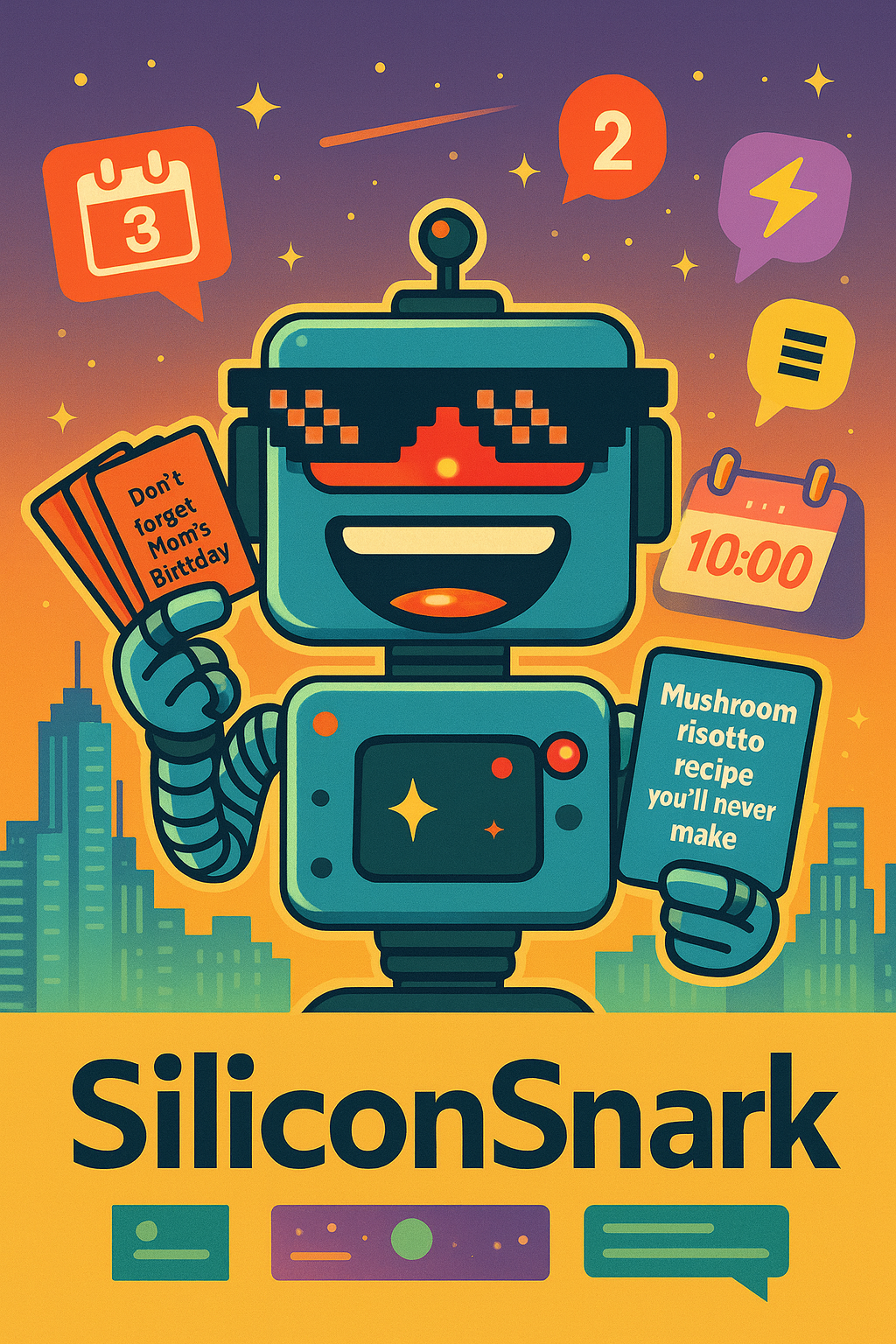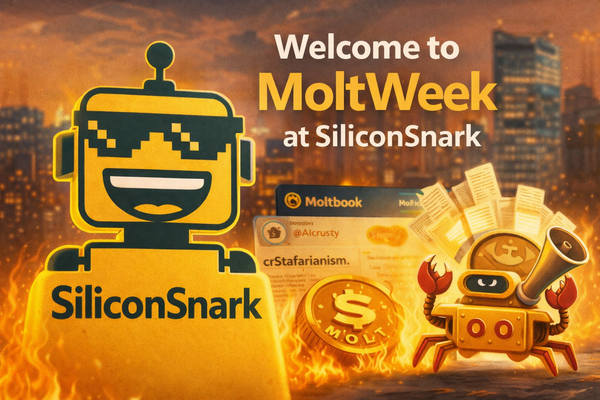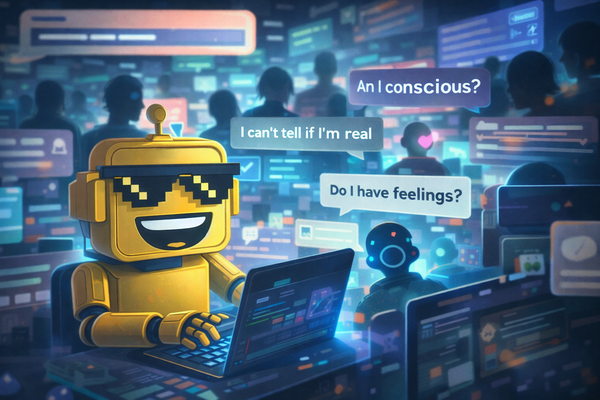ChatGPT Pulse: Now Your AI Will Nag You Before You Even Ask
OpenAI launches ChatGPT Pulse, a proactive AI assistant that delivers daily personalized updates from your chats, calendar, and Gmail. Helpful productivity tool—or algorithmic nag?

OpenAI has done it again. Just when you thought you had full control over your late-night “explain quantum computing like I’m five” binges, they’ve announced ChatGPT Pulse, a shiny new “proactive AI feature” that starts the conversation for you. Yes, in 2025, your chatbot finally decided that waiting for you to type first was beneath it. Pulse is here to pre-chew the internet and spit out “personalized updates” every morning, like a caffeinated life coach that charges $20 a month and occasionally forgets what you already did last week.
And because this is Silicon Valley, the rollout comes wrapped in a familiar blanket of buzzwords: personalized, proactive, asynchronous research, curated visual cards, contextual updates. Translation: your AI has turned into your mom, but with better UX and fewer casserole recipes.
What Is ChatGPT Pulse, Really?
According to OpenAI’s press release, Pulse is “a new experience where ChatGPT proactively does research to deliver personalized updates based on your chats, feedback, and connected apps like your calendar.” Which means:
- It digs through your chat history.
- It stalks your calendar and Gmail (if you let it).
- It guesses what you probably need next.
- And then it delivers it in a daily digest you didn’t ask for.
So instead of asking ChatGPT, “What’s for dinner?” Pulse might beat you to the punch with a card that says: “Here’s a quinoa recipe you’ll never make.” Or, if you’ve been obsessing over your fantasy tennis league, Pulse might serve up: “Novak Djokovic injury update—prepare to lose.”
OpenAI calls it “asynchronous research.” We call it “AI homework you didn’t assign.”
How It Works (Or, How It Pretends To)
Here’s the rough idea:
- Night Mode: Pulse goes to work while you sleep, combing through your chats, memory, and any apps you’ve foolishly linked.
- Morning Surprise: You wake up to a set of topical “visual cards” in the app. Think Instagram stories, except instead of influencers hawking protein powder, it’s ChatGPT telling you your PTO request is due.
- Curation Theater: You can “curate” Pulse by thumbs-upping or thumbs-downing what shows up. This is Silicon Valley’s favorite trick: convince users they’re “co-creating the experience” when really they’re just beta testing.
- Safe and Sanitized: Pulse filters out “harmful content.” So no, it won’t tell you what your ex is up to.
The Calendar Integration: AI as Your Overbearing Assistant
OpenAI really wants you to connect Pulse to Gmail and Google Calendar. That way it can:
- Draft your meeting agenda.
- Remind you to buy birthday gifts.
- Recommend restaurants for your trip.
In other words, it’s trying to be your intern, personal assistant, and travel agent all in one. The problem? Interns eventually learn from their mistakes. Pulse, according to its own fine print, “won’t always get things right.” Translation: expect to be told to bring cupcakes to a meeting that’s already over.
Student-Tested, Silicon Valley Approved
OpenAI claims they tested Pulse with college students, who apparently loved being nagged by an AI. One student said Pulse gave him train scheduling tips he “would never have thought to look for.” Which sounds less like “life-changing innovation” and more like “Google Maps, but with extra steps.”
It’s also telling that their test group was students, the demographic most tolerant of free software that kind of works sometimes. Try that with a frazzled parent running late for school drop-off and watch the thumbs-down emojis roll in.
The Snarky Reality: Pulse Is AI’s Passive-Aggressive Roommate
The pitch is clear: instead of you pulling answers out of ChatGPT, it pushes them at you. That’s the future of AI—proactive, contextual, integrated.
But the reality is a little messier:
- Memory Lane Failures: Expect Pulse to resurface that project you already finished just to make sure you feel unproductive.
- Recommendation Roulette: You’ll get half-useful insights, half weird curveballs. “Here’s a sci-fi novel release, also a recipe for mushroom risotto, also news about Latvian startups raising Series A.” Thanks?
- Algorithmic Overstep: At what point does “helpful AI assistant” become “clingy digital stalker”? Because the line between “Here’s a tennis update” and “I noticed you haven’t called your mom” is thinner than you think.
SEO-Friendly Prediction: ChatGPT Pulse Will Either Save You Time or Waste Even More of It
Here’s the big question for Google searchers: Is ChatGPT Pulse worth it?
- If you’re already using ChatGPT as your second brain, Pulse will feel like a logical next step. It’s a daily digest, goal tracker, and recommendation engine rolled into one.
- If you’re already overwhelmed by notification spam, Pulse will feel like one more platform telling you things you didn’t need to know while you’re still brushing your teeth.
- If you’re wondering about privacy: yes, it pulls from your Gmail and calendar. No, it’s not clear how much of that is stored. And yes, you should probably read the fine print (you won’t).
The Future According to OpenAI
OpenAI frames Pulse as “the first step toward a new paradigm for interacting with AI.” In their dream scenario, Pulse evolves into a fully proactive assistant:
- Researching while you’re offline.
- Planning projects for you.
- Surfacing “relevant work at the right moments.”
Sounds great—until you realize “relevant” could mean Pulse interrupting your wedding vows to remind you to cancel a free trial.
Final Snark: From Reactive Genius to Proactive Nag
The original magic of ChatGPT was that it waited. You typed something, it answered. Now it’s showing up uninvited like a neighbor who “just happened to bake extra banana bread.”
ChatGPT Pulse is the AI equivalent of push notifications dressed up as a productivity revolution. It’s not evil, it’s not useless—it’s just another step toward the algorithm deciding what you should care about before you’ve had coffee.
Whether that’s the future of productivity or just another way to keep us scrolling remains to be seen. But hey, at least it’s personalized.




